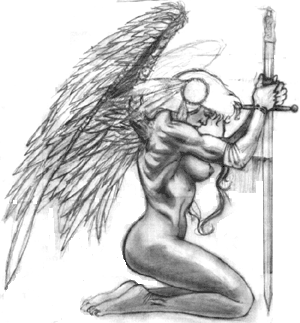Race as Culture

Author:

I don’t like the idea that all creatures of a single race/species have some homogeneous culture, and that all aspects are somehow solely biologically determined. This is useful for role-playing, but the more contemporary editions of some game systems present it as inextricably tied, and having only positive effects. That said, many have a large shared culture with many spread out societies and settlements that could account for capabilities and behaviors. Most people tend to just play themselves and the envisioning of their character using race/species and class is where role-playing ends. Having only advantages to race/species and class allows players to be even lazier. A racial culture should come with drawbacks and penalties evolved to its habitat, especially in relation to a global context or larger. In earlier editions of D&D™ it was steeped in cultural limits, there were alignment restrictions for class, and benefits and penalties/limits to races (even gender). This was some of the fun of the game, learning how to work with these and still succeed. Some people always ignore it, and those types of people will continue to do so. However, there is a chance here to show that obstacles can be overcome and fun to play in an official way by returning to some of these ideas; This is part of the notion that role-playing should be a fun challenge that promotes learning and a wider perspective. Obstacles and difficulty is a natural part of that, and enhances the immersive experience.
Race/Special Profile Example Presentation
Half-Ork of the Steel Realms have a Material Presence are approximately 1.5m – 2.1m tall, grey/yellow-grey/dark grey [near black] eyes, dark grey to green skin, black-green hair where humanoids normally have it, some have slightly protruding tusks and/or abnormally large jaw and teeth.
Dark Lands Heritage: Grew up among the violent orks of the Dark Lands or hounded by locales – either way a societal outcast on the fringes that had to fight for basic survival and twice as hard for any normal position, having no regular social contacts or support and drawing on their primal instincts from their Orrish heritage. Self preservation is their overriding principle, they can seem near-feral.
This is the dominant, most pervasive culture of the race/species and evinces it’s common physiologically and sociologically developed features. As they develop, the cultural norms are ingrained and stay with them in absence of consciously ridding themselves of them (and their benefits).
i20™ Race/Special Profile Details
i20 assumes you are familiar with DnD 5.0 SRD™ (ref ver 2014 DnD Wikidot) and the ![]() ©PHB it is based off of.
©PHB it is based off of.
Best Practice starting (@Character Inception) i20 Characters begin play with a PC Race/Species, a Background, and a Pathway of Experience all appropriate to their setting and no other CP unless noted by the Game Master.
=> Replaces All 5.0 SRD/PHB Half Orc; Racial capabilities are overridden by any linked materials hereafter.
| Defining Cultural Experience: Dark Lands Heritage | Physiological Aspects |
|---|---|
|
Their violent approach grants them Menacing Bearing, Relentless Aggression (1 Measure), Savage Attacks (1 Measure); Their Behavior normally makes them incapable of choosing non-lethal damage or Steady Aim. Detriments: Cultural Stigma (not accepted by society) Behavior(s): Short Fuse (little patience, personalizes everything), Cultural Lag (bad in social situations; their languages are rough and difficult to understand)
Excluded or Altered Backgrounds: Excluded or Altered Features: Excluded or Altered Traits: Excluded or Altered Skills: => The following Replaces “Ability Score Increase” Aptitude Profile: 4 measures; min. Kinetic 1 This race uses all the standard essential Attributes. Characters inherit the primary Developed Attribute Disposition by default (optional). Adjustments are noted as specific Attributes or Attribute Group(s).
– The Attribute Disposition reflects an adapted type of “Formidable Build” and “Powerful Frame“; Average Bulk is minimum. Immersed in Outlook: |
Dark Vision 30′ Basic Communicator (speak Orrish and local human dialect (Gladnorian mostly); literacy not included Min. Physiological Attribute Adjustments: +1 Strength, -1 Intelligence Minimum Body Types: Open Cultural Experience: Wherever the character grew up, they eschewed the common cultural experience in favor of a more individualistic approach to life. While they are aware of the cultural norms, they chose not to be confined by them and not to benefit from them, and any unconscious behavior that reflects them gradually fades over time. Unless noted, all Archetype options are available. CP COST = 0 Detriments: Cultural Stigma (not accepted by society) |